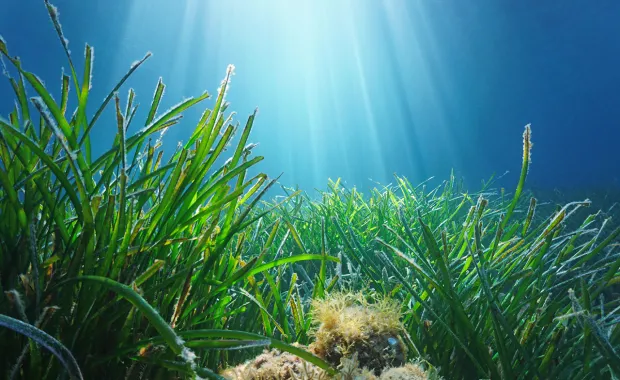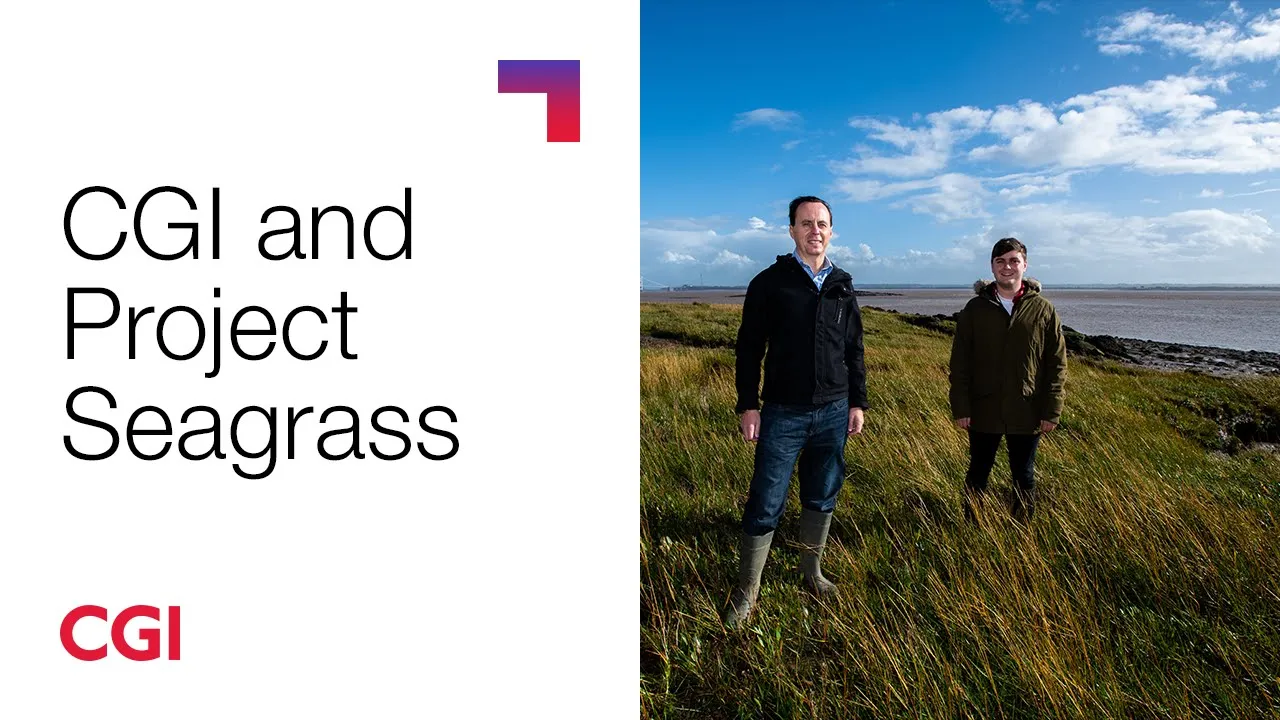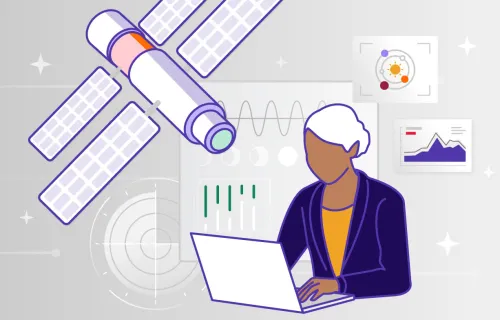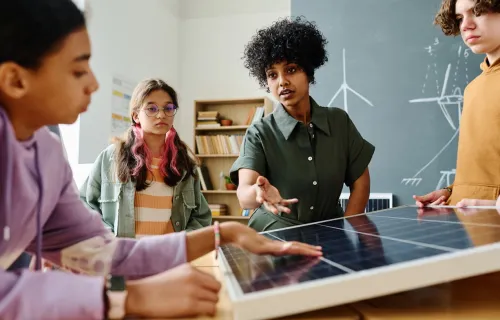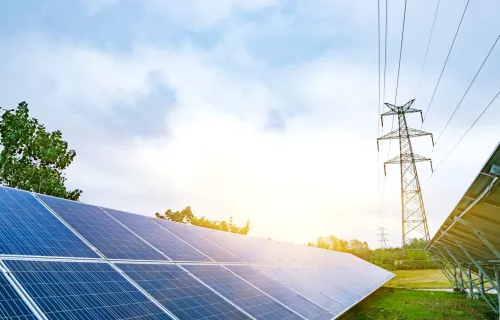Protecting and conserving seagrass ecosystems are critical to mitigate the impacts of climate change.
According to research published in the scientific journal, Frontiers in Ecology and the Environment, seagrass ecosystems globally can consume carbon up to 35 times faster than rainforests. Often termed “ecosystem engineers,” seagrass also acts as a nursery for young fish and other animals, increasing the biodiversity and food supply of our coastal waters. Yet, they are under threat from coastal development, pollution and damage from human activity.
At CGI, we continuously seek ways to use our IT and business consulting expertise to contribute to environmental sustainability. In the UK, we are joining forces with marine conservation charity, Project Seagrass, to advance the understanding and future conservation of seagrass ecosystems, one of the UK’s most promising carbon sinks.
Identifying seagrass meadows from space
The first step to protecting seagrass is to know where the meadows are located. Using the CGI GeoData360 Earth observation platform that leverages data from the European Space Agency’s Copernicus Satellite Earth Observation Mission, we help to identify these areas. This earth observation data will be processed using a seagrass identification algorithm to locate and quantify seagrass meadows across the UK. Project Seagrass will use this insight to aid activities to preserve and restore this valuable carbon sink resource and increase CO2 consumption by improving the health and volume of the UK’s coastal seagrass meadows.
This automated seagrass mapping tool can survey the entire UK in minutes—an exercise that previously had to be performed manually by boat or drones. The algorithm also correlates data collected by CGI volunteers and their families, including those participating in a CGI-organized STEM project to raise awareness of how space technology can help protect our natural environment.
“By working in partnership with CGI, we’ve been able to bring new cutting-edge remote sensing technology and expertise into our seagrass restoration work. Together, we’re learning more about the amazing marine life of the UK. We’ve also been fortunate to benefit from CGI’s financial assistance too and their support for STEM education. It’s a pleasure working with this professional team.”
Richard Unsworth
Founding Director of Project Seagrass
Taking action to make a difference
We also are a Platinum Sponsor of Project Seagrass and will adopt a patch of seagrass and plant 50 bags of seagrass seeds at a suitable habitat in Wales. In addition, a STEM@CGI At Home pack, developed jointly with Project Seagrass, will be available to young learners to help raise awareness of seagrass and the crucial role it plays in supporting a sustainable future.
Earth observation data is fundamental to tackling many of today’s issues relating to climate change and understanding the Earth’s natural resources better. At CGI, we are also using space data-enabled solutions to detect, manage and predict floods, fires, vegetation and forestry growth, as well as oil spills and leaks.
